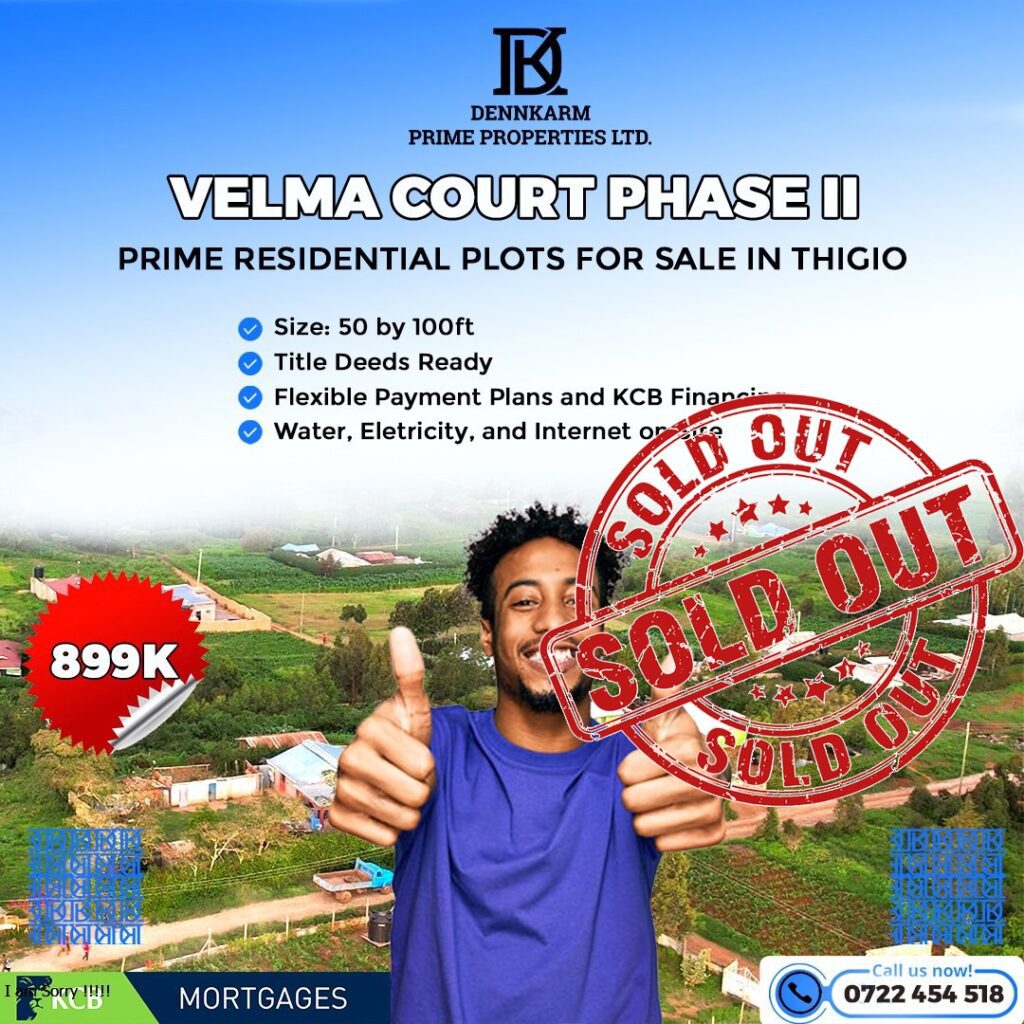Introduction
Land disputes are an unfortunate and costly reality in Kenya Real Estate. From contested boundaries in developing areas like Thigio in Kikuyu to complex succession battles, these conflicts threaten to derail lucrative Real Estate Investments, cause immense stress, and fracture family harmony. While the courts—specifically the Environment and Land Court (ELC)—offer a definitive resolution, litigation is notoriously long, complex, and prohibitively expensive. Court cases often drag on for years, depleting capital and frustrating all parties involved.
The solution lies in Alternative Dispute Resolution (ADR). This Ultimate Guide is designed to empower investors and landowners with the knowledge to navigate conflicts outside the courtroom, using faster, cheaper, and less confrontational methods like negotiation, mediation, and arbitration. By understanding these 5 essential steps, you can secure your asset, preserve peace, and protect your investment timeline.

Table of Contents
| Section No. | Topic |
| 1.0 | The Danger Zone: Common Land Conflicts in Kenya |
| 1.1 | Title and Ownership Disputes |
| 1.2 | Boundary and Encroachment Disputes |
| 1.3 | Succession and Family Property Disputes |
| 2.0 | The Ultimate 5-Step Resolution Roadmap (ADR Focus) |
| 2.1 | Step 1: Document Verification and Professional Assessment |
| 2.2 | Step 2: Direct Negotiation (The Amicable Solution) |
| 2.3 | Step 3: Mediation (The Neutral Facilitator) |
| 2.4 | Step 4: Arbitration (The Binding Decision) |
| 2.5 | Step 5: Litigation (The Last Resort – ELC) |
| 3.0 | Prevention Masterclass: Securing Your Investment Before Conflict Arises |
| 3.1 | The Role of the Surveyor and the Land Registrar |
| 3.2 | Legal Safeguards: Cautions and Caveats |
| 4.0 | The Dennkarm Prime Properties Solution in Thigio in Kikuyu |
| 4.1 | Pre-Vetting to Eliminate Conflict Risk |
| 4.2 | Local Knowledge as a Dispute Shield |
| 5.0 | More Information |
| 6.0 | Call to Action |
1.0 The Danger Zone: Common Land Conflicts in Kenya
Land disputes in Kenya arise from a complex interplay of historical, legal, and administrative failures. Recognizing the source of the conflict is the first step toward resolution.
1.1 Title and Ownership Disputes
These are the most severe disputes, often rooted in:
- Fraud: Forged title deeds, double sales of the same parcel, or illegal allocation of public land.
- Administrative Errors: Mistakes by the Lands Registry leading to overlapping titles or incorrect registration of ownership.
- Adverse Possession: Claims by occupants who have openly and continuously possessed land for more than 12 years without permission of the legal owner.
A title dispute immediately freezes any potential transaction, making the asset illiquid.
1.2 Boundary and Encroachment Disputes
This is common in rapidly subdividing areas like Thigio in Kikuyu where beacons may be removed, moved, or incorrectly placed. Encroachment occurs when a neighbor’s structure, fence, or hedge crosses the legally defined property line. These disputes are often emotionally charged but can be resolved efficiently through technical assessment.
1.3 Succession and Family Property Disputes
This category is prevalent in Kenya and stems from disagreements over the division of property left by a deceased family member, often due to the absence of a clear Will (intestacy). These cases are heard under the Law of Succession Act but can quickly involve land laws when the main assets are plots of land or developed properties. These require sensitive mediation guided by a lawyer who understands both family law and property rights.

2.0 The Ultimate 5-Step Resolution Roadmap (ADR Focus)
Kenyan law, and the specialized Environment and Land Court (ELC), strongly encourage parties to resolve land disputes through Alternative Dispute Resolution (ADR) before escalating to litigation. ADR methods are fast, confidential, and cost-effective.
2.1 Step 1: Document Verification and Professional Assessment
Before any formal negotiation, you must solidify your legal position and gather indisputable evidence.
- Review Documents: Check your Title Deed, Sale Agreement, and any official Survey Maps (RIMs or Deed Plans). Ensure all land rates and rents are paid up to date.
- Hire a Surveyor: For boundary disputes, immediately hire a licensed land surveyor. Their report, based on official records, establishes the true boundary and is the single most powerful piece of evidence.
- Engage a Land Advocate: A lawyer specializing in land law (a land advocate) is essential. They verify the opponent’s claim, advise on your legal rights, and determine the optimal path for resolution (ADR or court).
2.2 Step 2: Direct Negotiation (The Amicable Solution)
This is the fastest, cheapest, and most low-conflict path. It involves a direct dialogue between the conflicting parties, often facilitated by a neutral party or the landowner’s legal advocate.
- Goal: Reach a mutually agreeable solution based on documented facts (e.g., the surveyor’s report) and legal rights, avoiding escalation.
- Benefit: Preserves existing relationships (crucial with neighbors) and saves substantial time and money.
2.3 Step 3: Mediation (The Neutral Facilitator)
If direct negotiation fails, mediation is the next step. A neutral, trained mediator guides the parties toward a voluntary settlement.
- Role of the Mediator: The mediator does not take sides or impose a decision. They create a structured environment for calm, productive dialogue, helping the parties explore win-win solutions (e.g., compensation for encroachment or slight boundary adjustments).
- Outcome: If successful, the agreement is legally drafted by the advocates and signed, formalizing the resolution without setting foot in a court.
2.4 Step 4: Arbitration (The Binding Decision)
Arbitration is a more formal, private process where the parties agree to submit their dispute to an independent third party (the arbitrator), who hears the evidence and issues a legally binding decision (called an award).
- Key Difference: Unlike mediation, the outcome of arbitration is legally enforceable, much like a court judgment. It is typically faster than court proceedings but more formal than mediation. It is often preferred for complex commercial or development disputes.
2.5 Step 5: Litigation (The Last Resort – ELC)
If all ADR methods fail, the only remaining option is litigation at the Environment and Land Court (ELC).
- Jurisdiction: The ELC is a specialized court with the status of the High Court, established to exclusively handle disputes related to the environment, land use, and title to land.
- Procedure: Your land advocate files a formal lawsuit. This process is time-consuming (often taking 2–5 years), expensive, and stressful. It should only be pursued when title integrity or high monetary value is at serious risk.
3.0 Prevention Masterclass: Securing Your Investment Before Conflict Arises
For the savvy investor in Kenya Real Estate, the best strategy is proactive prevention. Dennkarm Prime Properties operates with this philosophy, minimizing client risk from the outset.

3.1 The Role of the Surveyor and the Land Registrar
In areas undergoing rapid change, such as Thigio in Kikuyu, the Land Registrar and the licensed surveyor are your primary tools for prevention:
- Official Boundary Determination: If you suspect a future boundary dispute, you can formally apply to the Land Registrar for an official determination and re-establishment of the boundary. The Registrar will inspect the site, review the official maps, and issue a decision, which is legally binding unless challenged in the ELC.
- Permanent Beacons: Ensure your surveyor places durable, permanent beacons that are properly registered. This clearly defines the legal boundary for all neighbors.
3.2 Legal Safeguards: Cautions and Caveats
These are protective legal instruments lodged at the Land Registry to safeguard your interest and prevent unauthorized transactions.
- Caution: A notice registered against the title to prevent any dealings (like a sale or mortgage) without the cautioner’s consent. This is often used when a buyer has paid a deposit but the transfer is not complete.
- Caveat: A similar notice, often lodged to notify the Registrar of an unfulfilled legal interest (e.g., a claim to ownership through inheritance).
Lodging a caution is a vital post-purchase security measure that acts as a digital red flag against double sales.
4.0 The Dennkarm Prime Properties Solution in Thigio in Kikuyu
Dennkarm Prime Properties views its role as a risk mitigator, ensuring that clients do not encounter the devastating legal and financial consequences of land disputes.
4.1 Pre-Vetting to Eliminate Conflict Risk
Our strategy for plots in Thigio in Kikuyu is focused on prevention:
- Guaranteed Clean Title: Every plot is thoroughly vetted against the Ardhisasa database for any existing caveats, cautions, or disputes before being listed for sale.
- Clear Beacons: All our plots are accurately surveyed by licensed professionals, with boundaries clearly marked and registered, eliminating the primary cause of boundary disputes.
- Legal Compliance: We ensure all required Land Control Board (LCB) consents (where agricultural) and County zoning approvals are in place, preventing legal disputes over land use.
4.2 Local Knowledge as a Dispute Shield
Dennkarm Prime Properties has deep local expertise in Thigio in Kikuyu. This local knowledge is invaluable for:
- Community Vetting: Our team engages with local administrators and community leaders to uncover any historical or customary disputes that may not be on official records, protecting our buyers from future social conflict.
- Mediation Support: Should a minor dispute arise (e.g., over a temporary encroachment), we often provide initial mediation support to ensure a swift, amicable, and cost-effective resolution for our clients, upholding the trust and transparency our brand stands for in Kenya Real Estate.
5.0 More Information
For further reading and professional guidance on navigating the complex legal landscape of land disputes in Kenya, consult the following official resources:
- Law Society of Kenya (LSK): For finding and verifying the credentials of a qualified Kenyan land advocate specializing in property law and ADR.
- Environment and Land Court (ELC): The specialized court for handling land disputes. Review the Judiciary website for court locations and procedures.
- State Department for Lands and Physical Planning: For official information and applications regarding boundary dispute resolution and legal procedures.
- The Land Act, 2012: Provides the guidelines for land ownership and dispute resolution.
- Dennkarm Prime Properties Blog: For more insights on Real Estate Investments and property ownership in Kenya.
- 5 Best Ways to Finance Land in Kenya
- Ministry of Lands and Physical Planning – Visit Here
6.0 Call to Action
Don’t expose your Real Estate Investments to unnecessary risk and costly litigation. Prevention is the ultimate safeguard.
Partner with Dennkarm Prime Properties for secure, pre-vetted plots that are guaranteed to minimize conflict risk.
Contact us today to secure your peace of mind in Thigio in Kikuyu!
Dennkarm Prime Properties Contact Details:
- Phone/WhatsApp: 0722-45-45-18 or 0101-45-45-00
- Email: info@dennkarmproperties.com
- Office Address: 3rd Floor (Room 301), Muchane Plaza, Kikuyu Town




